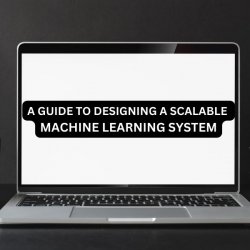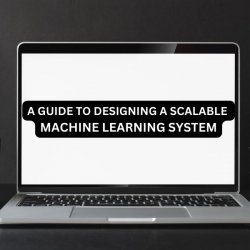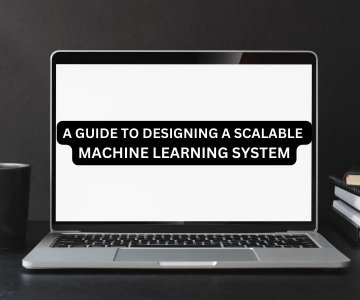Google Bard AI and its Impact on Education What We Can Expect?

Introduction
Google’s Bard AI is the newest addition to its AI portfolio, designed to revolutionize education as we know it. Utilizing Natural Language Processing (NLP), Bard AI can understand human language and process data rapidity, automating analytics and grading processes. This results in a vastly improved educational experience for students and educators alike.
So, what does this mean for you? With Google Bard AI you can expect an enhanced learning experience through feedback that is detailed, comprehensive, and timely. It’ll be just like having a teacher with you every step of the way! Feedback will be maximized, as the AI will be able to efficiently incorporate your strengths and weaknesses into its analysis. Additionally, educators too can benefit from streamlined analytics and grading processes, enabling them to focus on teaching students rather than mundane administrative duties.
While many are still waiting to see how powerful Google Bard AI truly is, there is no doubt that this amazing addition will revolutionize our educational system for the better. With increased efficiencies and improved personalized feedback, both teachers and learners alike can benefit from this incredible technology. Check Out: Online Classes
Overview of Google Bard AI
Google Bard AI is a highly advanced artificial intelligence created by Google to automate research tasks and improve writing and grammar checks. It has had a major impact on education, as its capabilities have allowed students to access more detailed and accurate information about topics of study. With its machine learning capability, Bard AI can quickly sort through large datasets and provide natural language processing that is easy for students to understand.
Bard AI also incorporates speech recognition technology, making it possible for seniors or those with disabilities to also take advantage of the system’s capabilities. This voice-enabled platform can be easily integrated with existing educational systems, providing additional support to students who require it.
In terms of data gathering and analysis, Bard AI is unparalleled in its efficiency. Through automation of research tasks, it can quickly find relevant information from reliable sources and enable students to discover crucial facts with speed and accuracy. Moreover, with Bard AI’s grammar check feature ensures that essays are free from any errors or typos; all tasks are completed quickly without compromising the final product’s quality.
All in all, Google Bard AI has revolutionized how we acquire knowledge by streamlining educational processes with its sophisticated set of tools powered by artificial intelligence. Students are now able to learn more efficiently thanks to this technology’s capacity for comprehensive data gathering and analysis. Increased efficiency alongside improved accuracy has enabled students to improve their understanding of complex ideas with timely results – benefitting not only their academic endeavors but also providing them with the necessary skills they need for life ahead. Check out: Professional Courses
Challenges the Educational System Faced Without AI
The educational system has come a long way since the early days but still faces challenges in today’s world. With the emergence of artificial intelligence (AI) into the education realm, these challenges could be solved or at least improved upon. Google Bard AI is one such example of AI being used to revolutionize the way we learn and access educational materials. This blog will discuss the six major challenges faced by the educational system without AI and what Google Bard AI and its impact can mean for education.
Student Learning: Without AI, learning can be hindered by a lack of meaningful engagement with course materials and personalized feedback from instructors. Furthermore, students often struggle to understand complex concepts that require creativity and problem-solving skills without proper guidance. As such, AI can be beneficial in providing more tailored instruction, as well as assistance in breaking down difficult material for better understanding and application.
Motivation & Engagement: Additionally, without AI students may feel bored or unmotivated when taking classes due to lack of personalization. AI eliminates this issue by allowing instructors to create more engaging content tailored to each student’s needs and interests through automated assessment tools and data analysis. This not only increases student engagement but also makes it easier for instructors to assess progress and provide feedback on areas where improvement is needed.
Personalization & Accessibility: Additionally, access to quality materials can be difficult for some students due to their location or financial situation. With AIpowered tools like Google Bard, students have access to more personalized content that is tailored to their individual learning styles and geared toward their strengths and weaknesses.
Advantages of AI in Education
As Artificial Intelligence (AI) continues to make advances in the education sector, there is a multitude of advantages to the integration of AI systems within education. From improving accuracy and efficiency to the automation of grading and feedback for students, AI presents various opportunities to optimize digital learning experiences.
One of the most notable advantages is adaptive and personalized instruction. With AI, students can benefit from personalized curriculums tailored to their individual needs something that wasn’t possible with traditional education methods. Similarly, AI technology can also provide targeted one on one tutoring sessions that can help improve student learning outcomes.
In addition, AIpowered systems can expand educational opportunities through virtual classrooms. Using advanced technologies like Augmented Reality (AR) and Virtual Reality (VR), students are able to access educational materials from anywhere in the world making global learning more accessible than ever before.
Finally, teachers may appreciate the enhancement in assessment tools through AI as well. Assessments have long been a challenge for educators as it requires time-consuming manual grading and analysis both of which can be streamlined through automated processes powered by AI systems.
Of course, this is just scratching the surface when it comes to what we can expect from Google Bard’s recent announcement that they will be leveraging their suite of AI software for use within educational institutions around the world. However, given all the potential advantages and enriched learning experiences that Google Bard AI could bring to students and teachers alike, we are eager to see what new possibilities this initiative will bring in terms of optimization within digital learning environments in the near future! Check out: DataTrained
Potential Impact on Students and Teachers
The potential impact of Google Bard AI on students and teachers is immense. This artificial intelligence technology could revolutionize the way we learn and teach in the classroom, making personalized education a reality. With AIpowered personalization, students can access tailored learning experiences based on their needs and interests. It also encourages them to be more actively engaged in their own education.
At the same time, it offers teachers access to powerful tools which can help them customize their assessment strategies and save them time when it comes to administrative tasks. With AIdriven personalization, teachers are able to give their students access to more learning resources and improve collaboration and knowledge sharing between them. Furthermore, it provides decision-makers with improved data insights for better decision-making when it comes to student guidance and advice.
In conclusion, Google Bard AI could have an enormous impact on both students and teachers when it comes to their educational experience. With personalized learning opportunities tailored to individual needs as well as powerful tools that simplify assessment activities and administrative tasks, this technology can be a real game changer when it comes to modernizing classrooms around the world.
Current Applications of Artificial Intelligence in Education
Artificial Intelligence (AI) is quickly becoming a part of everyday life, and the educational sector is no different. AI can be used to develop learning algorithms that allow for more efficient student engagement and provide predictive analytics to educators. Google Bard AI is one such application that has had an impressive impact on the world of education.
Google Bard AI has been found to be useful in providing personalized learning experiences for students, allowing them to get exactly what they need from their education. It also provides useful insights into how teachers can modify their approach based on the data gathered from the AI platform.
What can we expect in the future with applications of Artificial Intelligence in Education? Automated grading & tutoring systems are quickly emerging as one of the more popular applications of AI, and automated content creation comes a close second. Furthermore, improved decision-making and adaptive learning platforms are on the horizon too.
Real-time feedback to both students and teachers is also becoming increasingly common in educational institutions utilizing AI. This helps students stay motivated while ensuring teachers have up-to-date information regarding student progress and understanding. Ultimately, this is all leading towards effective student performance and improved outcomes for learners everywhere!
Applications of Artificial Intelligence in Education are having a major impact on how people learn and gain knowledge today. Whether it’s through Google Bard AI or other specialized platforms, functionality continues to improve allowing for smarter decisions, better results, and ultimately an enhanced learning experience for everyone involved. Check Out: Online Learning
Future Implications of AI in Education
As Artificial Intelligence (AI) technology continues to advance and become more sophisticated, its potential effects on education are becoming more significant. AI has the potential to revolutionize the way we learn and teach by automating educational processes, providing powerful tutoring support, creating virtual learning environments, enhancing the overall learning experience, and improving educational outcomes. In this blog section, we will explore Google Bard AI and its implications for education in terms of what we can expect in the future.
Google Bard is an AIbased technology that was designed with education in mind. It uses neural networks to understand and answer questions related to reading comprehension tasks. With Google Bard’s capabilities, it can be used to help automate grading processes, provide tutoring support for students who need extra help or guidance, create virtual classrooms where students can engage with one another in real-time, and enhance the overall learning experience by providing interactive visual aids that stimulate creativity and collaboration.
With Google Bard’s capabilities in place, students will benefit from improved educational outcomes as they are able to better comprehend readings and grasp concepts quickly. Automated grading systems can enable instructors to focus on instruction instead of student assessment while providing feedback on student understanding of the material. Additionally, improved tutoring support can help those who require extra assistance or further explanation of topics being taught. Virtual classroom environments can also be created for real-time engagement among students no matter their geographical location – this could be especially useful for remote education setups. Check Out: Online Education
Utilizing Technology to Enhance Learning Outcomes
The rapid advancement of technology has changed the way we learn, with many schools turning to digital courseware and automated grading systems to enhance learning outcomes. One area that is particularly noteworthy is the development of AI tutoring solutions such as Google Bard AI, which are ushering in a new era of personalized instruction and making education more accessible than ever before.
Google Bard AI is an Artificial Intelligence tutoring system from Google that uses natural language processing to interact with students, helping them better understand the material and providing personalized guidance. One of the primary benefits of AI tutoring systems is the ability for students to receive more tailored instruction and increase their understanding of complicated topics like math or science. Additionally, Bard AI can grade student responses quickly and accurately, reducing the need for manual grading from teachers or administrators.
Another benefit of utilizing Bard AI in education is its potential to make learning materials more accessible. With the help of natural language processing, those with disabilities or other impediments can have greater access to course material than ever before. This increased accessibility can create a more inclusive learning environment for all students.
Overall, Bard AI’s potential impacts on educational outcomes are exciting and encouraging. From automated grading systems to tailored instruction and increased accessibility, Google’s artificial intelligence solutions are putting us one step closer to achieving our education goals. In coming years we can expect to see even more advanced technologies utilized in our classrooms as we continue on this journey towards improved learning outcomes.






Ingen kommentarer endnu